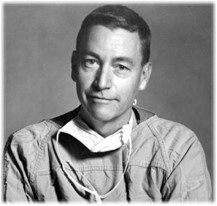Remembering Clyde F. Barker, MD | 1932-2025
October 8, 2025


Dear Colleagues,
I wanted to share the message below that Dr. Ron DeMatteo, Chair of the Department of Surgery, shared with his Department regarding the loss of a titan of American surgery and medicine, Dr. Clyde F. Barker. A tribute from the American Philosophical Society can also be found here.
Dr. Barker’s love for and knowledge of the history of surgery, in particular at the University of Pennsylvania, was deep. He was part of the fabric of Penn Medicine, and he will be greatly missed.
Warmest regards,
Jon
On October 2, Dr. Barker died peacefully at his home surrounded by his family. So ended an era. He spent the last 67 years dedicated to Penn Surgery.
He was born in Salt Lake City, Utah. After graduating from Phillips Exeter Academy, he attended Cornell University (Ithaca) followed by Cornell Medical School (Manhattan). Notably, he was a star tennis player and was nationally ranked as an amateur. He began General Surgery training at Penn in 1958. He never left. After completing a Fellowship in Vascular Surgery, he joined the faculty. He became Professor in 1973 and Chief of Vascular Surgery in 1981. As a technically superb operating vascular and transplant surgeon, he was confident, seasoned, calm, bold when appropriate, and compassionate. As the John Rhea Barton Professor and Chair of Surgery from 1983-2001, he was the quintessential leader and role model. He adeptly recruited/created many surgical leaders and instilled countless trainees with the desire to pursue research. He held many other leadership roles within Penn, including Chair of the Clinical Practices of the University of Pennsylvania. Dr. Barker was a disciple of Jonathan Rhoads and they had a special relationship. Like Dr. Rhoads, he became an icon in American Surgery.
Dr. Barker led Transplantation clinical care and research at Penn. He performed the first kidney transplant at the Hospital of the University of Pennsylvania. He worked on the immune aspects of tolerance with the pioneer immunologist Rupert Billingham and they contributed many seminal papers. With Ali Naji, Dr. Barker published 2 papers in Science demonstrating the importance of autoimmunity in the destruction of pancreas islets in diabetes and that intrathymic injection induced tolerance to islet allografts. He was continuously funded by the NIH for 25 years and had 5 R01s and an NIH Merit Award. He had over 400 publications and was on numerous editorial boards, including the Annals of Surgery.
Outside of Penn, he was the President of most societies that he joined! This included the American Surgical Association, American Society of Transplant Surgeons, Halsted Society, International Surgical Group, and the Philadelphia Academy of Surgeons. He served on the Board of Governors of the American College of Surgeons. He chaired the Board of the William Maul Measey Foundation. Remarkably, he was the President of the American Philosophical Society, the oldest learned society in the U.S. established by Benjamin Franklin in 1743.
His list of honors is long. His early academic development was supported by being a Markle Scholar. Dr. Barker was elected into the Institute of Medicine and the American Academy of Arts and Sciences. Other honors included the Medallion for Scientific Achievement from the American Surgical Association, the Thomas Starzl Prize in Surgery and Immunology, and a Lifetime Achievement Award from the Society of University Surgeons.
Dr. Barker was married for 63 years to the inimitable Dode Barker, who passed away in 2019. He is survived by his children Fred, John, William, and Elizabeth and six grandchildren.
Over the last several years, he worked incessantly with his daughter Elizabeth to research and chronicle the first history of our Department of Surgery, which was established in 1765. The Book is titled “Surgeons and Something More” and is an insightful, witty, and sometimes critical account of our history. He has been the Editor of the Penn Surgery Newsletter for over a decade.
Surgeon, Innovator, Scientist, Leader, Administrator, Counselor, Husband, Father, Athlete, Historian, and Friend. The term Giant is often applied to individuals who make important contributions to medicine or medical education. That label seems insufficient to describe Dr. Barker. Rather, he was a Titan. He had a distinguished career and an extraordinary life. He has indelibly shaped our department and Penn Medicine.
A Memorial Service to honor him will be held in the future.
//
Contributions can be sent to the Clyde F. Barker Penn Transplant House at Penn Medicine. Credit card donations can be made at http://givingpages.upenn.edu/ClydeBarker. For checks, please make payable to “Trustees of the University of Pennsylvania,” noting “in memory of Dr. Clyde F. Barker” and mail to Penn Medicine Development, Attn: Andrew Deal, 3535 Market St., Ste. 750, Philadelphia, PA 19104.
==============
Jon Epstein, MD
Dean, Perelman School of Medicine
